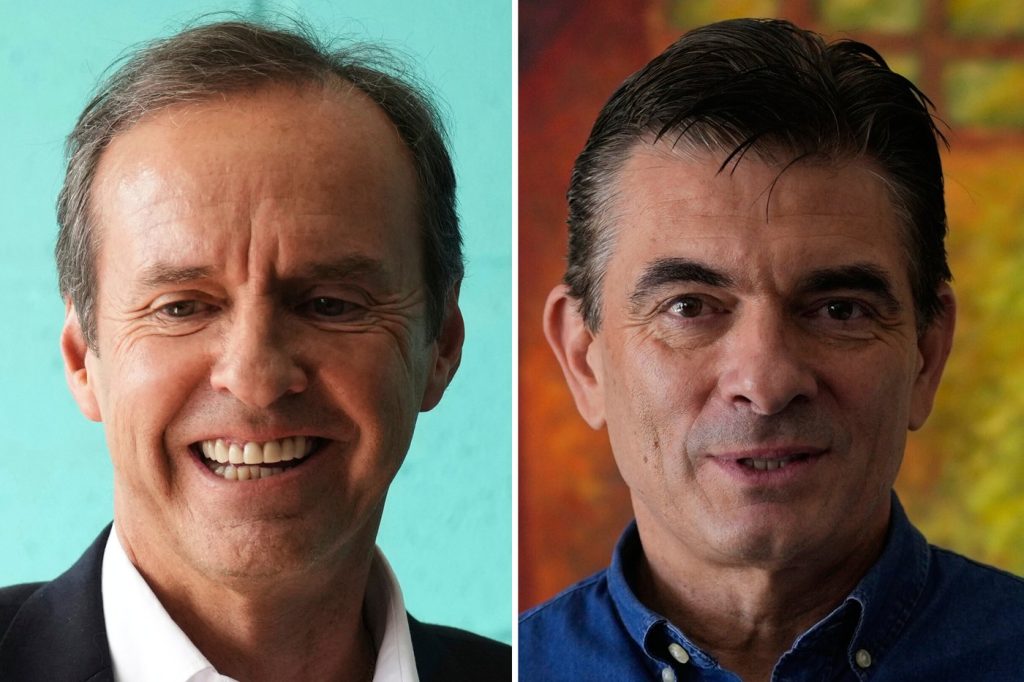LA PAZ, Bolivia (AP) — Bolivia is set to hold a runoff presidential election on Sunday, reflecting a tight race as voters weigh their options between two conservative candidates amidst a significant economic crisis. This election marks a pivotal moment for the country, which has experienced almost two decades of governance by the Movement Toward Socialism party (MAS).
Since 2023, Bolivia has faced a debilitating shortage of U.S. dollars, creating a situation where citizens are effectively locked out of their own savings and imports have been severely restricted. The black market value of the boliviano has plummeted to half of its official exchange rate. Compounding the problem, inflation surged to 23% in the last month, the highest rate seen since 1991, leading to widespread fuel shortages that have paralyzed daily life across the nation.
The two main contenders in this runoff election are right-wing former President Jorge "Tuto" Quiroga and centrist senator Rodrigo Paz. Both candidates present themselves as agents of change, promising a departure from the populist policies that characterized the long rule of MAS, founded by Evo Morales, who served as Bolivia's first Indigenous president from 2006 to 2019. The MAS party is currently grappling with internal divisions and public dissatisfaction due to ongoing fuel shortages.
Quiroga and Paz both aim to revitalize Bolivia's economy by proposing reforms that would dismantle the fixed exchange rate, restructure state-owned enterprises, and encourage foreign investment. However, they differ significantly in their approach. Quiroga advocates for immediate financial relief through a substantial rescue package from the International Monetary Fund (IMF) and cuts to state spending, including the elimination of fuel subsidies and downsizing the public workforce. His proponents argue that such drastic measures are necessary for swift recovery.
Conversely, Paz offers a more cautious strategy, suggesting a gradual phase-out of fuel subsidies while maintaining social protections akin to those offered by MAS. Paz has garnered notable support due to his more tempered approach and his stance against calling on the IMF, a move that he believes would resonate better with the populace wary of previous neoliberal policies.
Voter sentiment is divided, as 24-year-old architecture student Mirian Chávez expressed confidence in Quiroga's preparations for immediate resolution to the crisis. Meanwhile, 27-year-old taxi driver Marcelino Choque voiced his preference for Paz's commitment to sustaining social aid for struggling citizens. This reflects the broader concerns among voters about the potential social ramifications of austerity measures.
The aftermath of the election could catalyze significant changes in Bolivia's international relations, with both candidates expressing intentions to foster closer ties with the United States. This marks a potential shift away from Bolivia’s recent alignment with China and Russia, especially after decades of anti-American sentiment under left-wing governance. The new administration is also expected to address the pressing need for fiscal stability, especially considering that Bolivia has been sustaining significant fuel subsidies, which cost around $2 billion last year.
As polling day approaches, the candidates have slightly moderated their rhetoric surrounding austerity, promising a more palatable pace in implementing reforms to avoid mass unrest similar to that seen during Morales’ attempts to lift fuel subsidies. Both Quiroga and Paz have been active in appealing to voters by contrasting their grassroots, populist campaigns with Quiroga's more affluent background and larger campaign budget.
The outcome of the election will not only have lasting effects on Bolivia's internal policies but also has the potential to realign geopolitical relationships across South America as the country prepares to embrace foreign capital and investment in its substantial lithium resources. Ultimately, the future leadership will face the daunting challenge of revitalizing Bolivia’s economy while navigating the complex social dynamics that govern voters' expectations and responses to reform measures.











